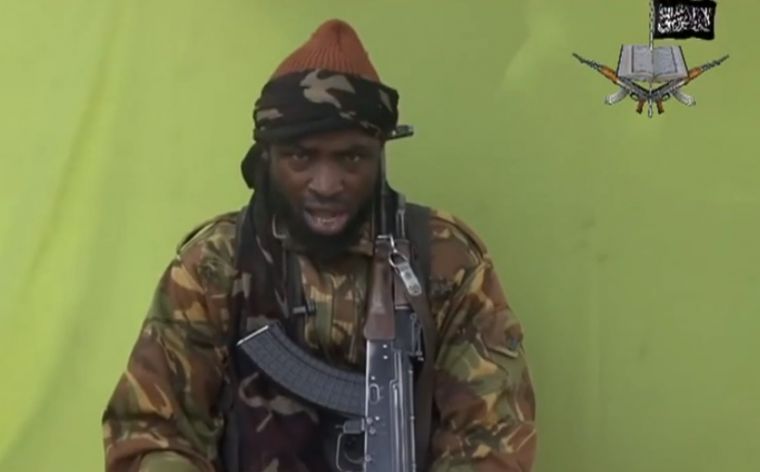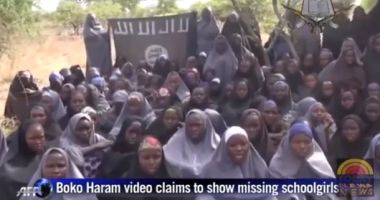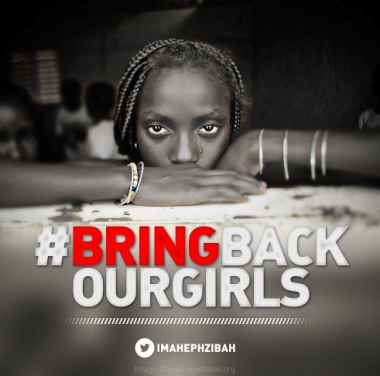Boko Haram's reign of terror: What you need to know

On 21 May, Boko Haram attacked two villages in Nigeria, killing over 40 people. This followed a double car-bombing in Jos that killed at least 118 people the previous day. Boko Haram, is the group which, in April kidnapped hundreds of students while they were taking an exam. Despite an enormous amount of international pressure, we still don't know where the girls are.
In a disturbing video released on 5 May, Boko Haram leader Abubakar Shekau said the kidnapped girls were "slaves" and that he would sell them "in the market", claiming: "it is Allah that says I should sell human beings" and "instructed us [to] soak the ground of Nigeria with Christian blood and so-called Muslims contradicting Islam."
So just who is Boko Haram, and what can be done to stop them? Here is our guide:
Who is Boko Haram?
Boko Haram (Hausa for "Western Education is Forbidden") is an Islamist terrorist organisation with stated links to the Somali terror group al Shabaab and Al Qaeda in the Islamic Maghreb (AQIM).
Why did they abduct the girls?
After initially claiming the girls would be sold into slavery, the group recently tried to use them as leverage to secure the release of imprisoned Boko Haram members. However, this was articulated as a possible motive by the media prior to being adopted by Boko Haram.
This is not the first time Boko Haram has abducted people. In 2004, after an abortive uprising in Borno State, Boko Haram members abducted seven Christian men. In 2009, more than 100 Christians were seized from their homes in Maiduguri in Borno State and used as human shields as the Nigerian forces advanced against its headquarters. In both instances efforts were made to forcibly convert their hostages. More recently, as well as abducting Christian women and girls as sex slaves and forced labourers, the group has also abducted men and boys for forced labour, indoctrination and extortion.

What's their history?
The group arose in 2002, initially calling itself Al Sunna Wal Jamma and at that time was nicknamed "the Taliban" or "Yusufiyya" after its founder-leader, Mohammed Yusuf, who styled himself on Mullah Omar. Mohammed Yusuf believed Islam had been corrupted by Westernisation and all that it involves, especially education and Christianity, and rejected the legitimacy of the state and of Muslim traditional rulers. The group sought the destruction of federal Nigeria and its replacement by a Shari'a state.
Boko Haram has never concealed its hatred of Western influence, and particularly, of the Nigerian federal system and the allegedly "Western" religion, Christianity.
Since its initial uprisings in 2003 and 2004, Boko Haram has attacked Christian and Federal targets in a campaign that has included bombings, beheadings, razing of entire communities and abductions. In 2010, it began to target key Muslim figures who had criticized its dogma and activities. More recently, as well as continuing its efforts to cleanse areas of Borno and Yobe States of indigenous Christian populations, the group has increasingly conducted collective punishment attacks on Muslim communities where vigilante groups work with the Nigerian security services.
There seems to be continuing international reluctance to fully acknowledge Boko Haram's ongoing religious cleansing campaign in predominantly Christian areas of Nigeria. Indigenous Christian villages of southern Borno State have been particularly decimated. During the last few months of 2013, the group destroyed some 46 villages, forcing over 14,000 indigenous Christians to flee into neighbouring Cameroon.
What's being done to secure the girls' release? Why has Nigeria changed its mind about international intervention?
The scale of the Chibok abductions, coupled with the ages and gender of the victims, has outraged Nigerians into uniting across tribal, religious and regional divisions. The combination of local pressure, bolstered by international attention, has kept the kidnapping on the Nigerian government agenda and may have contributed to its willingness to accept help. France, the United States and the United Kingdom are providing specialist assistance, and the Nigerian Police Force has offered a reward of around £180,000 for anyone with credible information on the whereabouts of the girls.
However, the situation is complex and while pressure has been focused on the central government, the Borno State authorities have questions to answer. Nigeria is a federal, not a centralised state, and state governors control vast budgets and exercise considerable powers in their own right. Influential voices in the northern states, many of which have adopted Sharia law, have spoken in the past of the legitimacy of Boko Haram's "grievances", even in the aftermath of appalling atrocities.
In an open letter following the destruction of the 46 villages, local Christians levelled accusations of negligence at the Borno State administration rather than the Federal Government. Moreover, state authorities still have questions to answer regarding the abductions. In February 2014, after Boko Haram gunmen attacked a boarding school in Yobe State brutally murdering over 50 people, mainly schoolboys, the Borno State government ordered the closure of all high schools for fear of a similar massacre.
However, the Chibok School, located in a predominantly Christian area, was re-opened despite reservations from the examinations board, after state authorities gave assurances adequate protection would be provided and refused the board's request to evacuate students to safer areas. Reports on the number of security personnel present on the evening of the abductions vary from three to 15, but all agree that the soldiers possessed limited ammunition. There are also allegations of collusion by elements within the armed forces, who allegedly warn Boko Haram of impending operations, sometimes with deadly consequences.

What is the religious landscape in Nigeria?
Nigeria can be divided crudely into a predominantly Islamic north, a central area where the major religions are evenly balanced, and a mainly Christian south. A sizable minority also follows traditional beliefs in each area. There are no accurate figures, since any questions to determine religious designation were removed from the census.
How free are Nigeria's Christians and where are the tension points?
The enactment of "Full Shari'a" by 11 northern and central states following the advent of democratic government in 1999, and the federal government's consistent failure to address this constitutional challenge effectively, to all intents and purposes validated the comprehensive marginalization of religious minorities in these states.
Non-Muslims who complete primary often school struggle to access higher education even in urban areas, and there are consistent reports of discrimination in gaining employment or promotion once employed. Moreover, episodic violence against religious minorities has occurred in a climate of impunity, with perpetrators rarely if ever facing justice, and victims generally receiving neither justice nor compensation.
This systematic religious discrimination underpins the regular emergence of violent sects like Boko Haram that deny religious freedom to non-Muslims, and increasingly, to Muslims who do not share their restrictive dogma.
Elsewhere in the country, constitutional provisions for religious freedom are generally respected.
With thanks to Christian Solidarity Worldwide for the information provided in this article.
*** From 15-22 June the Religious Liberty Partnership, an alliance which includes CSW, Release International and OPen Doors UK, is holding a Week of Prayer for Nigeria. The week will be focused on the kidnapped girls but also on Boko Haram's 10 year campaign of violence in the country. Find out more here











